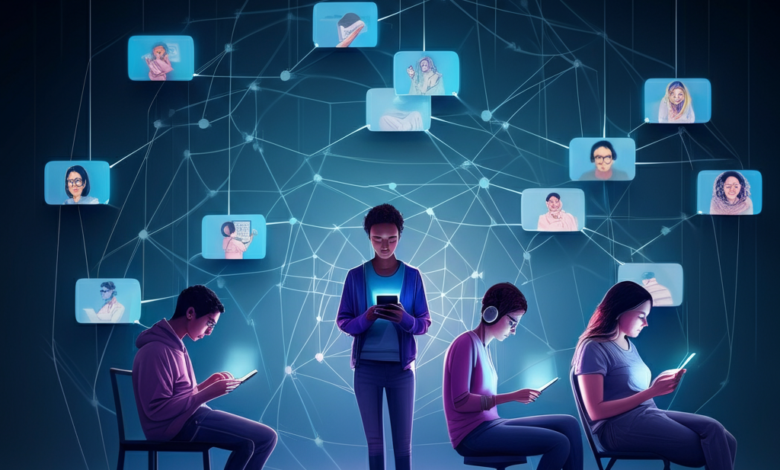The “Fapdemic” Phenomenon and Its Impact on Gen Z

The internet is no stranger to impactful, meme-worthy terminology. From “doomscrolling” to “quiet quitting,” our digital landscape thrives on catchy terms that encapsulate larger societal issues. One such term making waves among Gen Z is “fapdemic.” But what exactly does it mean, where did it come from, and why should you care?
This blog unpacks the origins and implications of the “fapdemic,” explores its social and psychological impact, and discusses ways Gen Z can establish healthier internet habits.
What Is the “Fapdemic”?
The term “fapdemic” is a portmanteau of “fap” (a slang term for masturbation) and “epidemic.” It refers to what some describe as a widespread, compulsive consumption of adult content online, particularly among younger internet users like Gen Z. This phenomenon is often characterized by excessive or habitual behavior that some argue could have negative psychological, social, or even physiological consequences.
Though no official studies have labeled such behavior as an “epidemic,” the word highlights increasing concerns surrounding digital addiction, particularly the overconsumption of hyper-stimulating content facilitated by the internet.
Where Did the “Fapdemic” Come From?
Like many internet-born phrases, “fapdemic” gained traction across Reddit, TikTok, and meme pages. Its rise is tied to a larger conversation about the pervasive nature of adult content online and its accessibility to younger audiences. Platforms like NoFap (an online community encouraging people to abstain from pornography or masturbation) have also played a role in spreading the term.
Gen Z influencers and content creators have further popularized it by discussing their personal experiences or sharing memes, blending humor with social commentary.
One distinct feature of Gen Z is their openness in addressing taboo topics, using platforms like TikTok as a form of public discourse. The “fapdemic” isn’t just a term; it reflects deeper concerns about how online habits intersect with personal development and mental health.
The Impact of the “Fapdemic”: What Are People Saying?
Opinions on the term “fapdemic” range widely, particularly in the context of its purported effects.
1. Social Isolation
Opponents of the behavior described by “fapdemic” argue that overconsumption of adult content could lead to social withdrawal, reduced confidence, and difficulty forming authentic relationships.
2. Mental Health Consequences
Gen Z already reports significant levels of stress and anxiety compared to older generations, and compulsive behaviors tied to digital use may exacerbate these issues. Some users claim adult content desensitizes them, contributing to feelings of dissatisfaction or even contributing to conditions like depression.
3. Unrealistic Expectations
Another common critique revolves around how adult content sets unrealistic expectations regarding intimacy, body image, and relationships. These unrealistic portrayals can skew perceptions and create anxiety surrounding real-world experiences.
4. Attitude Towards Productivity
A subset of the conversation highlights how excessive escapism, whether through adult content, video games, or binge-watching, can detract from productivity or personal growth. This feeds into the broader narrative of “instant gratification culture,” which some believe is rampant among Gen Z.
Counterarguments and Criticisms
While the critiques above are worth discussing, not everyone agrees with the framing of the “fapdemic.”
1. Pathologizing Normal Behaviors
Some argue that terms like “fapdemic” unnecessarily stigmatize perfectly normal behaviors, fostering unhealthy shame rather than addressing realistic issues. Sexual expression, they argue, is part of human nature, and the term risks demonizing it inappropriately.
2. Moral Panic or Legitimate Issue?
Others point out comparisons to past moral panics over media consumption, like fears surrounding violent video games in the early 2000s. Could the “fapdemic” be today’s version of that misplaced anxiety? Skeptics suggest more research is needed to draw meaningful conclusions about its actual impact.
3. Freedom of Choice
Another group defends adult content as a personal freedom. They argue people should have the agency to decide how they engage with such content, provided it doesn’t harm others. For them, the term “fapdemic” unnecessarily frames personal choice as a societal problem.
Creating Healthy Habits in a Digital Landscape
Whether or not one identifies with the concerns surrounding the “fapdemic,” the larger conversation about digital habits presents an opportunity for introspection. Here are some practical tips to maintain balance online.
1. Self-Awareness and Boundaries
Start by being honest with yourself. Track your habits, whether it’s time spent consuming adult content or aimlessly scrolling TikTok. Apps like Screen Time (Apple) or Digital Wellbeing (Android) can help you stay accountable.
2. Practice Digital Minimalism
Adopt habits that encourage intentional internet usage. This could include decluttering your social media, turning off notifications, or scheduling screen-free times throughout your day.
3. Engage in Offline Activities
Encourage real-world engagement by pursuing activities that foster creativity, physical movement, or personal growth. Whether it’s taking up painting, joining a gym, or volunteering, offline hobbies can fill time often lost to digital distractions.
4. Foster Open Conversations
For younger users in Gen Z, discussing internet habits with trusted friends or mentors can demystify these issues. Online communities or discourse on platforms like Reddit (when used responsibly) can also act as support systems.
5. Prioritize Mental Health
If online habits are interfering with life, seek professional guidance. Therapists and support groups specializing in digital addiction can help reframe behaviors and restore balance.
Let’s Talk About It
The “fapdemic” isn’t just a buzzword; it’s a reflection of deeper challenges faced by Gen Z in a hyper-connected world. No matter where you stand, it opens the door for meaningful conversations about digital habits, mental health, and personal values.